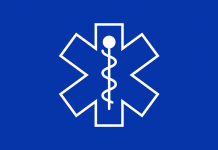Dear Parents –
As many of you may know, there has been a significant increase in reported cases of dengue fever within HCMC this season. Here at SSIS we have responded with increased spraying for mosquitos as well as asking our cleaners to look for any areas of campus where standing water might become a breeding ground for these mosquitos.
As we have upcoming Week Without Walls trips in the Middle School, we have been in touch with the service providers for those excursions. All are aware of our concerns. They, too, take precautions in their areas to ward off mosquito infestations and report that they have not had any problems this season. We will continue to be vigilant about student safety on these trips, even as we know that dengue fever is more of an urban problem than a rural one.
Our nurse has put together resources for those who may not be familiar with dengue fever, which I have included here for your reference.
Sincerely yours,
Mark Iver Sylte, Head of School
—————
Dengue Fever
Dengue fever is a disease caused by a family of viruses that are transmitted by mosquitoes. Symptoms, which usually begin four to six days after infection and last for up to 10 days, may include:
Sudden, high fever
Severe headaches
Pain behind the eyes
Severe joint and muscle pain
Fatigue
Nausea
Vomiting
Skin rash, which appears two to five days after the onset of fever
Mild bleeding (such a nose bleed, bleeding gums, or easy bruising)
Sometimes, symptoms are mild and can be mistaken for those of the flu or another viral infection. Younger children and people who have never had the infection before tend to have milder cases than older children and adults
Treatment for Dengue Fever
There is no specific medicine to treat dengue infection. If you think you may have dengue fever, you should use pain relievers with acetaminophen and avoid medicines with aspirin, which could worsen bleeding. You should also rest, drink plenty of fluids, and see your doctor. If you start to feel worse in the first 24 hours after your fever goes down, you should get to a hospital immediately to be checked for complications.
Preventing Dengue Fever
There is no vaccine to prevent dengue fever. The best way to prevent the disease is to prevent bites by infected mosquitoes, particularly if you are living in or traveling to a tropical area. This involves protecting yourself and making efforts to keep the mosquito population down.
To protect yourself:
Stay away from heavily populated residential areas, if possible.
Use mosquito repellents, even indoors.
When outdoors, wear long-sleeved shirts and long pants tucked into socks.
When indoors, use air conditioning if available.
Make sure window and door screens are secure and free of holes. If sleeping areas are not screened or air conditioned, use mosquito nets.
If you have symptoms of dengue, speak to your doctor. To reduce the mosquito population, get rid of places where mosquitoes can breed. These include old tires, cans, or flower pots that collect rain. Regularly change the water in outdoor bird baths and pets’ water dishes.
If someone in your home gets dengue fever, be especially vigilant about efforts to protect yourself and other family members from mosquitoes. Mosquitoes that bite the infected family member could spread the infection to others in your home.
The ES&MS Nurse Office
Updated on 10.09.2015
Source of information: http://www.webmd.com/a-to-z-guides/dengue-fever-reference?page=2 and http://www.medicinenet.com/dengue_fever/article.htm


![[AS] Welcome New Faculty, 2023-2024 (May 2023) Head of School Letter header](https://enews.ssis.edu.vn/wp-content/uploads/2022/08/HOS-Letter-SY22-23-218x150.png)

![[AS] Award-Winning Author Minh Lê Visits SSIS!](https://enews.ssis.edu.vn/wp-content/uploads/2023/04/Minh-Le-218x150.jpg)
![[AS] Annual Community Survey](https://enews.ssis.edu.vn/wp-content/uploads/2022/03/2022-Community-Survey-218x150.jpg)
![[ES] Classroom Placement, 2023-2024 – Opportunity for Parent Input elementary school general graphic](https://enews.ssis.edu.vn/wp-content/uploads/2022/07/ES-eNews-Cover-218x150.png)

![[G6-8] Important End-of-Year Events and Dates](https://enews.ssis.edu.vn/wp-content/uploads/2022/07/MS-eNews-Cover-218x150.png)


![[G9-11] Invitation to University Application Policies and Procedures, Wednesday, 8:00 am](https://enews.ssis.edu.vn/wp-content/uploads/2020/10/University-Application-Process-218x150.jpg)
![[G12] US Student Visa: US Consulate to Provide Information, Monday, May 8, 6:00 – 7:30 pm HS eNews Cover](https://enews.ssis.edu.vn/wp-content/uploads/2022/07/HS-eNews-Cover-218x150.png)






